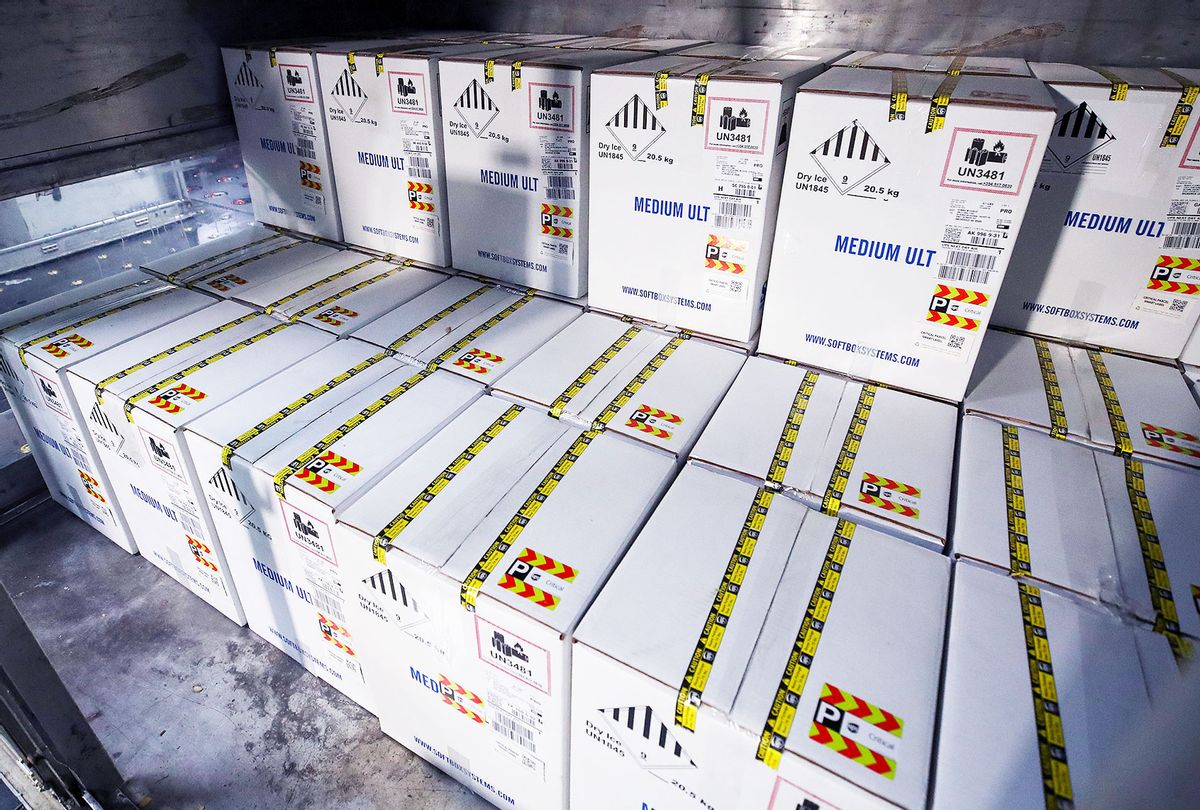As a physician and infectious disease epidemiologist, it is not lost on me how extraordinary it is that one year since the start of the COVID-19 pandemic, we are now vaccinating approximately three million people in the US each day against this virus.
The hope I am feeling after an unfathomable year is tempered by the realities of the global rollout of these vaccines. Some of my colleagues and frontline workers at Doctors Without Borders/Médecins Sans Frontières (MSF) in places like Yemen, Papua New Guinea, and countries in Southern Africa are still unprotected from COVID-19, even as they face new waves of infection and struggle to keep up with the influx of people seeking care in overwhelmed hospitals.
Viruses don't respect borders. Vaccinating people in the US alone won't end this pandemic and the longer it takes to vaccinate people across the globe, the greater the risk to us all as new variants take hold. That's why we are calling on the Biden Administration to take urgent and bold action and begin sharing surplus vaccine doses with countries that are woefully behind us in securing COVID-19 vaccines.
The US's recent decision to donate AstraZeneca COVID-19 vaccines is an important and welcome first step towards increasing equitable access worldwide. A plan to share surplus doses is not only scientifically smart, it would show the world that the US is again a leader in global health.
The US has fully vaccinated more than a quarter of its population and has secured 1.2 billion doses of vaccines. This means that if every person in the US received two doses — and double dosing is only required for two of the three currently approved vaccines — the US could vaccinate its entire population of 330 million and still have more than half a billion surplus vaccines. Without urgent action it is estimated that people in low- and middle-income countries will not receive adequate supplies of vaccines until at least 2023.
Want more health and science stories in your inbox? Subscribe to Salon's weekly newsletter The Vulgar Scientist.
My colleague in Baghdad, which is currently facing another wave of infections, echoed the hopelessness many MSF staff are feeling: "Without vaccination, the end of COVID-19 [in Iraq] is hard to see. Many of the doctors we work with do not know when their turn for vaccination will come. In the meantime, our colleagues continue to fall sick."
If we continue to move so slowly in fixing these massive inequities in access to vaccines everywhere, we risk squandering the promise of these medical breakthroughs, and this virus and its many variants will remain a threat to us all.
The good news is that the US government has a historic opportunity to help end this pandemic everywhere by transferring its surplus doses to countries that urgently need them. The US should do this through COVAX, the global initiative that aims to deliver COVID-19 vaccines based on public health needs. The US facilitated a COVAX meeting on April 15 to raise money for the initiative, but what COVAX urgently needs is more doses.
People in places like Lebanon, where MSF is helping the Ministry of Health administer vaccines, just recently received their first batch of vaccines through COVAX. But they're the lucky ones; frontline health workers and vulnerable groups in some countries haven't received a single dose.
Transferring doses to COVAX now — and encouraging other countries to follow suit — is our best chance to vaccinate people quickly and end this pandemic for everyone, including health workers and other groups at high risk of contracting COVID-19 who should be prioritized for vaccination according to the WHO framework for allocation of these vaccines.
Transferring doses to COVAX is the fastest step the US can take during this emergency, but the Biden Administration shouldn't stop there. It should also push US companies to share the technology that was developed with US taxpayer money to other manufacturers around the world and fund those efforts to accelerate global vaccine manufacturing.
Hoarding these vaccines is dangerous. It means people outside the US — including frontline health workers who risk their lives each and every day to save others — will die or be left unprotected from this virus simply because of where they happen to live.
If the US remains committed to its longstanding mission of international health and humanitarian assistance, it will realize that we're only as safe as our neighbors around the world.
The current US vaccination campaign is an incredible feat, but for it to truly be called a success, it can't end at our borders.



Shares